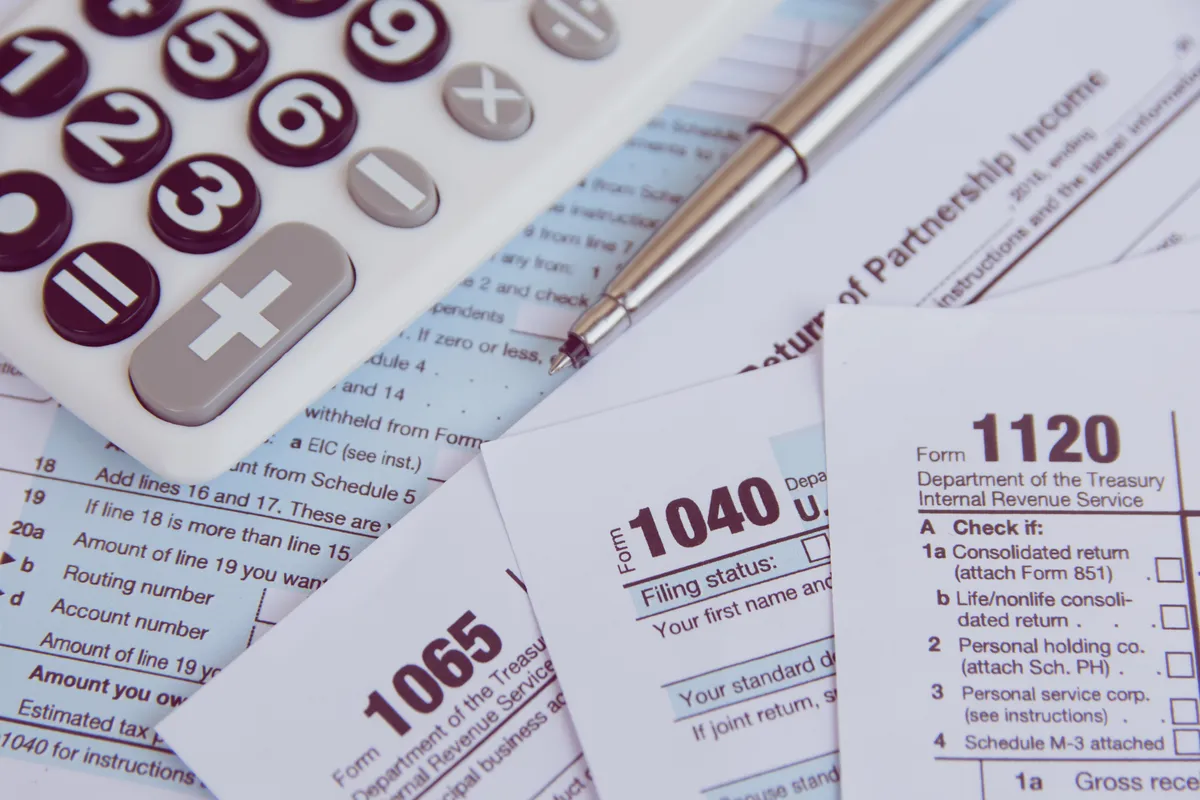6 min read time
Table of Contents

Are Personal Injury Settlements Taxable
In most cases, personal injury settlements are not taxable at the federal level.
This nontaxable rule, outlined further in Internal Revenue Service (IRS) Publication 4345, applies to compensation awarded to victims for the injuries or sickness they may have suffered due to an accident.
What Lawsuit Settlements Are Not Taxable
A majority of lawsuit settlements are typically nontaxable under the Internal Revenue Code.
Commonly untaxable legal settlements are covered below.
Personal Injury Lawsuit Settlements
Under IRC Section 104, a lawsuit settlement used to compensate a person for personal physical injuries or sickness is not taxable.
This tax exclusion applies whether the settlement money received is in installments or a lump sum.
Settlement awards for medical bills, pain and suffering, and other physical injury-related damages are common personal injury settlement damages that are not taxable.
Workers' Compensation
Also outlined under IRC Section 104, a legal settlement given to a worker for job-related injuries or illnesses is not taxable income.
This includes settlement money provided by state-mandated worker's compensation programs or employer-provided insurance.
Emotional Distress Linked to a Physical Injury
If you file an emotional distress claim for mental anguish caused by a physical injury, illness, or any other physical symptoms of an accident, then the emotional distress damages will not be taxable as they are considered an extension of the physical injury.
An example is that following a car accident, you file a personal injury claim and include emotional distress; the lawsuit settlement you receive for the emotional damages will not be taxed.
Reimbursement for Medical Expenses
A legal settlement that is obtained as reimbursement for medical expenses is not taxable.
However, this will only apply if you have not already taken a tax deduction for the medical costs in the previous year. For this reason, it is highly recommended that you consult with a tax attorney to understand whether or not your legal settlement for medical expenses is taxable.
Property Damage
Damages awarded for property damages are typically not taxable under IRC Section 1001 unless the amount of property damages exceeds the adjusted basis of the property.
If a settlement payment compensates for the damage or loss to property up to its adjusted basis, then it will be considered a return of capital, and the settlement received will not be required to pay taxes.
What Type of Lawsuit Settlements Are Taxable

While most settlements, such as a personal injury settlement, are untaxable, there are some exceptions to a legal settlement being exempt from the tax implications.
Below are commonly taxable lawsuit awards.
Settlement Interest
According to IRC Section 61, if you have earned interest on a lawsuit settlement, which is typically in cases where a lawsuit takes a substantial time to resolve and includes an interest component, the interest you received will be considered taxable and be taxed.
Emotional Distress Not Related to a Physical Injury
If you obtain a lawsuit settlement for emotional distress that was not a result of physical injuries or physical sickness, then the amounts paid will be considered income and taxable.
An example is that if you obtain compensation for emotional/mental distress caused by non-physical factors such as harassment or discrimination, the compensation will be considered taxable income.
Lost Wages and Employment-Related Damages
Whether in a personal injury settlement or in a different form of lawsuit, any portion of that settlement you receive, which is meant to compensate for lost wages or lost business profits, will require you to pay taxes.
This is the case because the IRS treats compensation for lost wages as regular wages, meaning they are subjected to federal tax, Social Security tax, and Medicare tax.
Business or Contract Dispute Settlements
Compensation obtained from a business dispute or contract breach will require the recipient to pay tax according to tax law IRC Section 61.
Property Damage Settlement Which Exceeds Adjusted Basis
After filing a property damage claim, if the damages awarded exceed the adjusted basis, which is the value of the property minus the depreciation, the excess amount will be taxed as capital gain.
Are Punitive Damages in Personal Injury Cases Taxable
Under IRC Section 61, punitive damages awarded in personal injury lawsuits are considered taxable income under the U.S. Federal tax codes.
What Are Punitive Damages
Following a personal physical injury, if the defendant's actions were seen as extremely negligent to the court, such as if they were drunk driving, recklessly driving, or hit and ran, then the plaintiff may be awarded punitive damages.
It's crucial to understand that punitive damages are not meant to compensate the plaintiff for any physical injuries or physical sickness but instead to punish the defendant for their reckless or harmful behavior, which is why they suffer from tax consequences.
Is Compensation Received for Legal Fees Taxed
Yes, compensation awarded to cover attorney fees is typically taxed.
However, there are exceptions as it depends on the type of lawsuit and how the payment is structured.
Contingency Fees and Taxes
When an injured party receives a settlement through negotiations or trial, the entire amount must be reported to the IRS, including the portion that goes to paying legal fees.
For example, if a victim is awarded a $150,000 settlement and their attorney's contingency fee is 30%, which is $45,000, the victim must still report the full $150,000 as income on their tax return.
Exception: Personal Injury Cases
Under IRC Section 104(a)(2), a settlement received from a personal injury case is not taxable; this includes settlement money used to pay for legal fees.
This means that those who suffer physical injuries or physical sickness can have their legal fees paid without needing to pay any tax.
How Do I Report Settlement Income on My Taxes?
Paying taxes is a process that must be done correctly and timely in order to avoid any tax problems.
When it comes to paying tax on a settlement, it can typically be done by:
- Determine If the Settlement Is Taxable: The first step to reporting a settlement awarded on your taxes is determining whether the settlement is taxed.
- Review Your Tax Forms: If your settlement comes with tax, then a Form 1099-MISC or a Form W-2 will typically be issued to you.
- Reporting the Settlement: Depending on what tax form you receive, you'll need to report the settlement on Line 8 of Schedule 1 if it's a Form 1040 or, as employ wages, a Form W-2.
- Deductions for Legal Fees: When filing taxes after receiving a settlement, there may be a deduction for legal fees, which can be obtained by using the above-the-line deduction outlined in IRC Section 62(a)(20). If done, you may be able to reduce your adjusted gross income.
- State Tax Considerations: It's crucial that you also take into account any state taxes that apply to your compensation. To do so, we recommend that you consult with a tax advisor or tax lawyer.
If you face any complications while reporting a lawsuit award on your taxes, you should seek professional tax help from a tax lawyer or tax advisor to avoid any tax penalties.
What States Do Not Have Tax on Lawsuit Settlements
There are several U.S. states that do not impose taxes on settlement money, for they either have a personal income tax or they exempt lawsuit awards.
The states where tax is exempt on lawsuits are:
- Alaska
- Florida
- Nevada
- South Dakota
- Texas
- Washington
- Wyoming
Although these states offer the tax benefit of not taxing lawsuit money, it doesn't mean federal taxes are not still imposed.
Contact a Las Vegas Car Accident Lawyer Today
If you or a loved one was in an auto accident in Las Vegas, contact our experienced Las Vegas personal injury lawyers.
With over 20+ years of experience, our attorneys have the skills to handle the insurance company, obtain a fair settlement, and even get a favorable court judgment if required.
File an auto accident claim today by calling (702) 566-3600 for a free consultation.
Obtain the Compensation You're Entitled To
Contact Us Today
Rodney Okano Car Accident Lawyer is a Las Vegas personal injury law firm with over 20 years of experience helping clients obtain maximum compensation following injuries from accidents such as car crashes, worksite injuries, and slips and falls. Over those years, The Rodney Okano Car Accident Lawyer Law Firm has become an experienced law firm that can ensure exceptional results for any of its clients.





